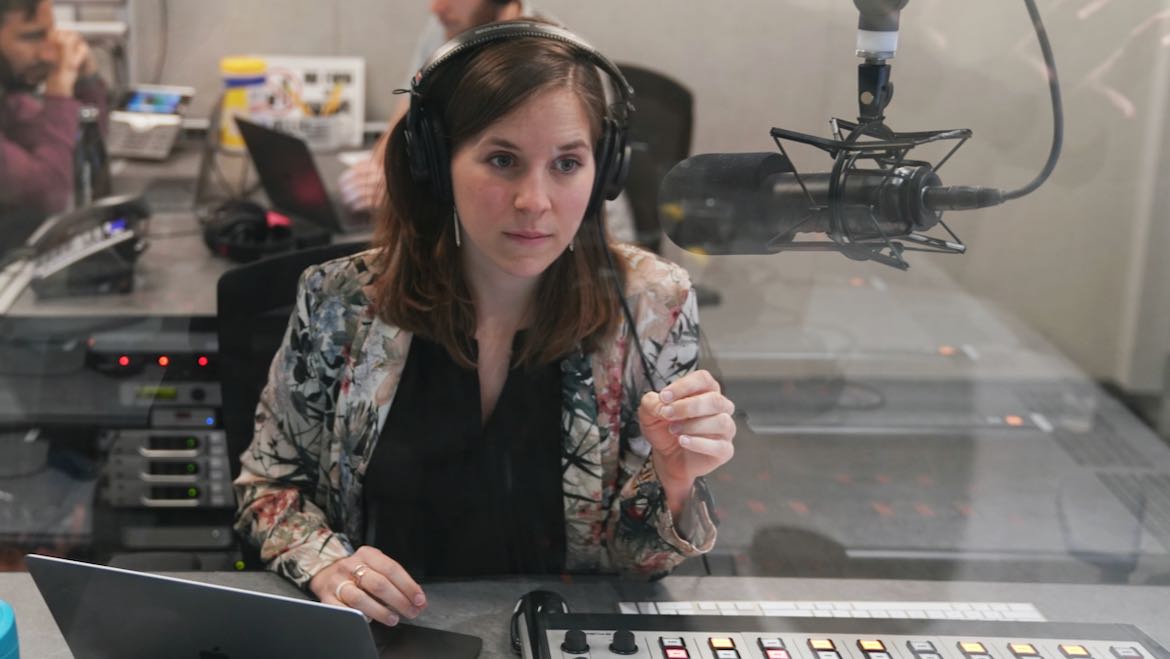Public TV privatization drive falters in Idaho
The campaign to throw Idaho Public Television out of the state budget seems to have run out of oomph.
On Feb. 20 [2001], the legislature’s Joint Finance and Appropriations Committee okayed IPTV’s funding requests almost without change — without raising the privatization issue. And five days earlier, the state Board of Education, licensee of the state network, voted 5-2 to advise the legislature against privatization.
“I am fairly certain the issue is dead for this year,” says Jennifer Gallagher Oxley, who reported on the struggle for Boise’s Idaho Statesman. “That doesn’t mean it won’t come up again next legislative session.” Support for public TV has been so overwhelming that legislators aren’t willing to take up the issue for the moment, she says. “Idaho is a conservative state, but people love public television.”
Right-wing activists’ assault on IPTV wasn’t a popular cause even among conservatives, says Betsy Z. Russell, who covered the story for the Spokesman Review in Spokane and Coeur d’Alene. “A lot of conservatives live in very remote areas, and they like having Idaho Public Television.”
The January publication of a study on the finances and other details of privatization [earlier article] had a profound effect” on the issue, according to Peter W. Morrill, g.m. of the state network. “Up to that point, there were few outside entities that were part of the ongoing discussions. It really came down to—at least in the press — a lot of personal opinions.” The report was commissioned by the state Board of Education, prepared by Bornstein & Associates consultants and funded by CPB.
Last year, while religious conservatives were assailing IPTV for airing “anti-family” programs, the legislature’s joint finance panel was much less receptive to the state network’s needs. It approved only about half of the year’s installment toward digital conversion, or $2 million. This month, by a vote of 17-3, the joint committee approved three times as much, $6.2 million, plus the state’s annual contribution toward IPTV’s operating budget, $1.6 million. The only objections came from three Republican senators from eastern Idaho, Mel Richardson, Robert Lee and Stan Hawkins, according to the Spokesman Review.
“The issue of privatizing IPTV, a popular topic last year, wasn’t even brought up this time around,” editorialized the Idaho Statesman. “What a refreshing turnaround.”
The capital appropriation for DTV leaves the state network seeking a remaining installment of about $2 million in fiscal 2003. Morrill says the network expects to take delivery on its first digital transmitter in April and to activate it in Boise this fall.
Morrill doesn’t expect second thoughts on the funding decisions. “Once an appropriation leaves the appropriations committee, it is pretty unusual for it to be changed on the floor,” he explains.
The panel also declined to renew its order to the state Board of Education to monitor controversial programming. That directive prompted the board to order daily broadcasts of disclaimers denying that IPTV intends to promote the violation of state laws. Morrill expects the spots will disappear from the air July 1, with the expiration of last year’s directive.
IPTV’s licensee, the Board of Education, had already voted 5-2 against privatizing the state network. At its Feb. 15 meeting, the board also voted 4-3 to reject a compromise motion backing digital funding while continuing talk about privatization.
In its vote, the board took the advice of speakers at its Feb. 7 hearings. Of 51 speakers in the eight-city videoconference hook-up, only two favored privatization, as did only 31 of 867 Idahoans who submitted written comments. Blake Hall, a former Republican Party chairman who recently joined the board, said privatization proponents weren’t aware the hearings would be held. Morrill denied rigging the hearings. “I did not engage in any ‘phone tree,’ as you might indicate,” he said, according to press accounts. The board had directed him to publicize the hearings on-air, but he used the board’s script, which was straightforward, he told Current.
Earlier hearings had similar turnouts. None of the 25 speakers in House Education Committee hearings last February favored privatization. The same was true at Senate Education Committee hearings this winter, according to Morrill.
“I have heard support from people all over the state,” Superintendent of Schools Marilyn Howard said in the Spokesman Review. “The largest concern I’ve heard . . . is that people feel disconnected from their government. They don’t get to hear enough of the kinds of reports that they get on Idaho Public Television.”
The push for privatization grew out of heated complaints about two programs aired by the state network that were sympathetic to gays and lesbians—It’s Elementary in September 1999 and Our House in June 2000. But legislators have since stated additional objections. Sen. Robert Lee complained this month about bedroom scenes featuring unmarried characters on Masterpiece Theatre, and Sen. Stan Hawkins suggested that IPTV air programs that question the theory of evolution, according to the Spokesman Review.
The privatization issue may have been laid to rest as legislators heard from constituents who like IPTV, according to Nick Miller, a Boise attorney who is president of the local Friends of Idaho Public Television. But Miller says it’s less clear that critics have had any change of heart about restricting programs they dislike.
“Of the thousands of programs carried on IPTV, legislators are bound to find one or two they don’t like,” predicted an Idaho Statesman editorial on Feb. 22. “When that happens, they should do what’s proper and mature—turn the channel.”
EARLIER STORIES
David Stewart profiles Wiseman, 1998.
State Republican Party endorses campaign to spin-off state network.
Bornstein report lays out financial situation and options for IPTV, January 2001.






